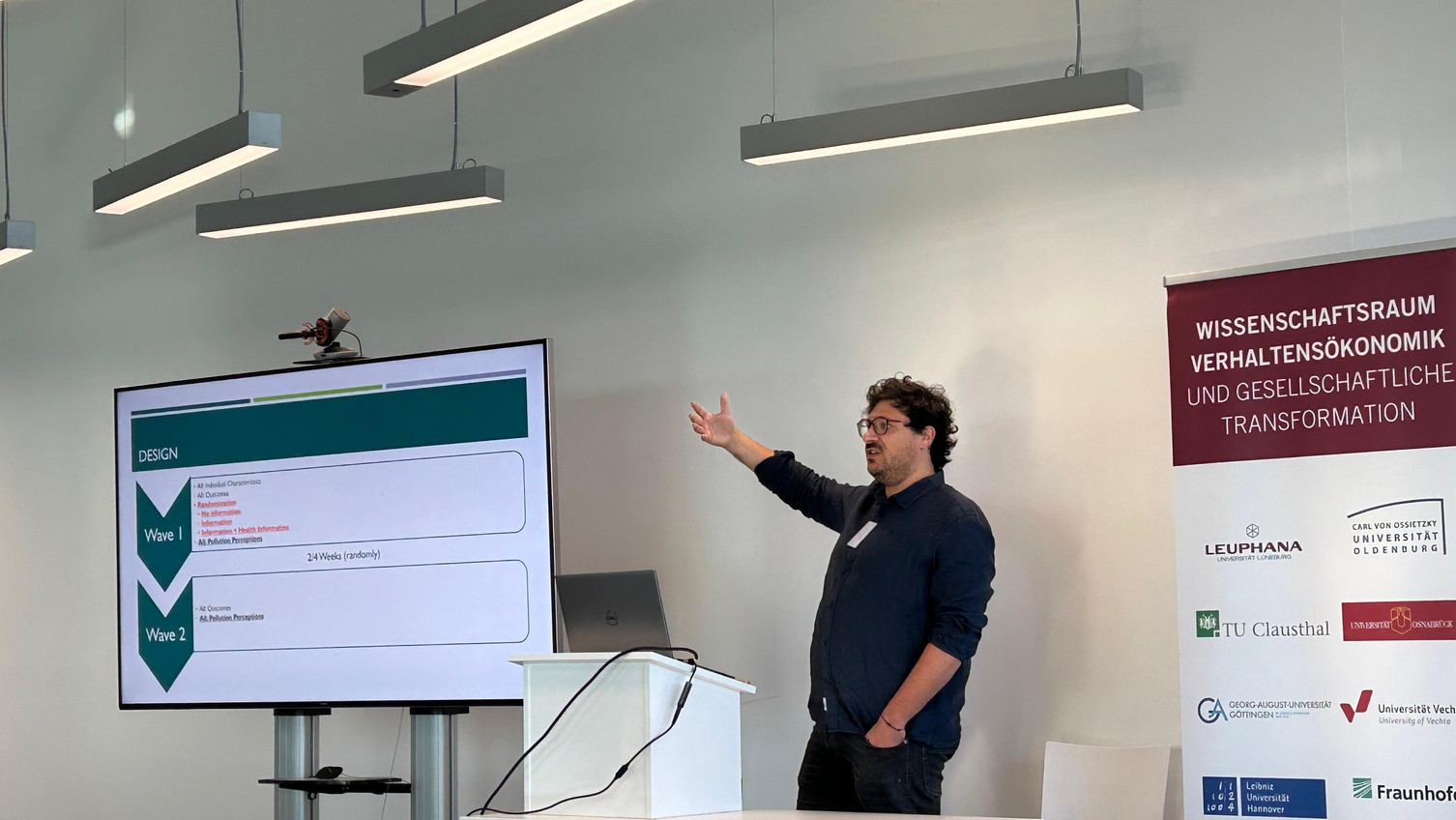Leuphana Workshop with Prof. Dr. Johannes Lohse shows: Experiments Help Shape Realistic Climate Policy
2025-10-27 How can behavioral economics experiments contribute to more effective environmental policy? At the workshop “Experiments for the Environment,” researchers from across Europe gathered at Leuphana University of Lüneburg to discuss innovative approaches to climate protection. The event demonstrated that experimental research can help design realistic environmental policies. The workshop was supported by the zukunft.niedersachsen program and Leuphana University.
When environmental policy is grounded in empirical behavioral research, it can ensure that climate protection measures are not only economically sound but also behaviorally realistic. This was the central finding of the workshop “Experiments for the Environment,” which brought together 50 European researchers from various disciplines at Leuphana University of Lüneburg on September 24–25.
“Experimental economics will play an increasingly important role in shaping sustainable transformation processes,” summarized Professor Johannes Lohse, who reflected on two days filled with experiments, insights, and lively discussions. Lohse, Professor of Law and Economics at Leuphana, organized the international event together with his team from the Research Cluster on Behavioral Economics and Societal Transformation.
“If we want to design effective environmental policies, we need to understand how people actually behave. Experiments allow us to test and learn what truly promotes sustainable action,” Lohse emphasized during his opening remarks. Following his address, participants discussed how experimental methods can contribute to improved environmental and climate policy. Researchers from Hamburg, Bochum, Hanover, Zurich, Heidelberg, Lund, and other universities and research institutions presented studies on topics such as climate adaptation, carbon pricing, cooperation in public goods, and social responsibility in markets. Their work underscored the growing importance of experimental evidence in understanding economic decisions and their environmental implications.
Both senior scholars and early-career researchers exchanged ideas across ten thematic sessions:
- Climate Risks and Adaptation
- Collective Action and Cooperation
- Policy Instruments
- Energy and Transport
- Early Warning Systems and Disasters
- CO₂ Compensation and Adaptation
- Air Pollution, Information, and Health
- Thresholds and Irreversibility
- Social Preferences and the Environment
- Markets, Energy, and Consumer Responsibility
Ethical, methodological, and practical challenges in experimental research were also on the agenda—from the effects of social information on prosocial behavior to the reliability of online data collection. Highlights included keynote lectures by Karine Nyborg (University of Oslo), Mike Price (University of Alabama), and Anthony Heyes (University of Birmingham).
The open and cooperative atmosphere fostered vivid discussions that revealed the value of bringing together economists, psychologists, and political scientists to address key societal challenges from multiple perspectives. The workshop also highlighted the importance of early feedback on new research ideas and study designs. “New research questions and approaches emerged during the workshop that will be pursued through joint research projects and grant proposals,” Lohse concluded at the end of the event.
The event was supported not only by Leuphana University but also through the zukunft.niedersachsen program, funded by the Lower Saxony Ministry of Science and Culture and the Volkswagen Foundation.

